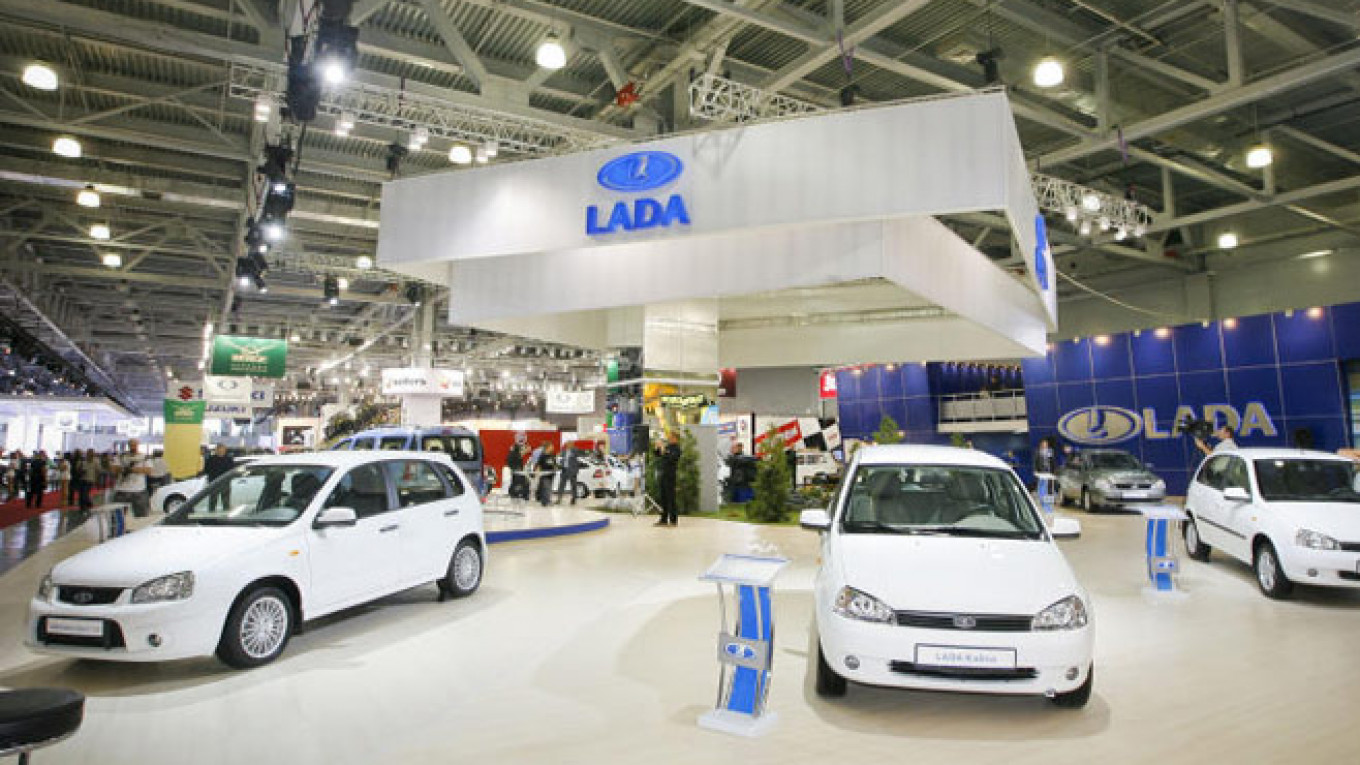Sales of Russian budget car brand Lada soared more than 15 percent in June from the previous month, according to the brand's producer, boosted in part by an aggressive discounting scheme carried out even as Russia's economic crisis gutted the country's car market.
This rise in sales pushed Lada's market share to 20 percent in June — up from 16 percent in June last year, Lada's producer AvtoVAZ, Russia's biggest car manufacturer, said in a press release Thursday.
"Lada has not only bridged the rift with 2014, but is performing better than the market as a whole," the press release said. A total of 26,400 Lada cars were sold in June, according to AvtoVAZ, which is controlled by the Renault-Nissan alliance.
Lada managed to expand its share even as the Russian car market heads into a contraction forecast to reach up to 35 percent this year, according to global audit firm PricewaterhouseCoopers.
The Lada brand's success comes largely thanks to AvtoVAZ's efforts to bring the cars' already low prices even lower, said Azat Timerkhanov, senior analyst at market research firm Avtostat.
"The improvement in sales in June is connected to special offers which AvtoVAZ applied to a number of models," Timerkhanov said.
"Buyers, for instance, got discounts in the range of 20,000-30,000 rubles ($360-$540) on the Lada Granta liftback, the three-door Lada 4x4 and the Lada Largus station wagon," he said.
These discounts made Lada brand cars, already some of the cheapest on the market, even cheaper. According to preliminary estimates from AvtoVAZ, Lada brand cars held 51 percent of the market for cars priced at under 600,000 rubles ($10,000) in the first half of the year.
The low-budget Lada Granta sedan, which starts at 332,000 rubles ($6,000), was the most popular car in Russia in the first half of the year, selling more than 63,500 units, AvtoVAZ said.
While Russians have historically preferred foreign cars when available and affordable, the revitalized Lada brand has grown steadily more attractive to buyers as Russia's economic crisis squeezes their earnings.
Real wages were down 8.8 percent in the first half of this year compared to last year, according to data from state statistics service Rosstat, with the economy expected to contract by around 3 percent this year as Western sanction over the Ukraine crisis and low oil prices squeeze investment.
Car sales have been hit particularly hard by the ruble currency's 40 percent slump to the U.S. dollar since the start of last year, which has raised the cost of imported cars and components.
Car sales slumped 37.7 percent year-on-year in May, according to market analysts at the Association of European Businesses (AEB) lobby group — an improvement from April's drop of 41.5 percent, the sharpest monthly fall in a decade. Lada sales were down 33 percent in May, the AEB said.
Contact the author at s.skove@imedia.ru
A Message from The Moscow Times:
Dear readers,
We are facing unprecedented challenges. Russia's Prosecutor General's Office has designated The Moscow Times as an "undesirable" organization, criminalizing our work and putting our staff at risk of prosecution. This follows our earlier unjust labeling as a "foreign agent."
These actions are direct attempts to silence independent journalism in Russia. The authorities claim our work "discredits the decisions of the Russian leadership." We see things differently: we strive to provide accurate, unbiased reporting on Russia.
We, the journalists of The Moscow Times, refuse to be silenced. But to continue our work, we need your help.
Your support, no matter how small, makes a world of difference. If you can, please support us monthly starting from just $2. It's quick to set up, and every contribution makes a significant impact.
By supporting The Moscow Times, you're defending open, independent journalism in the face of repression. Thank you for standing with us.
Remind me later.






